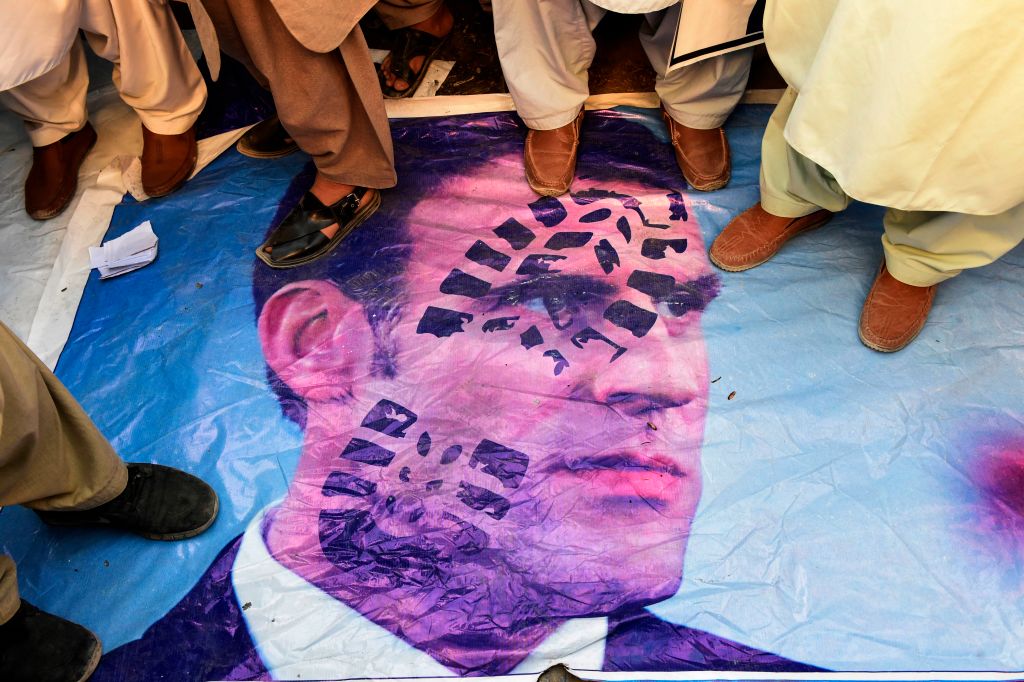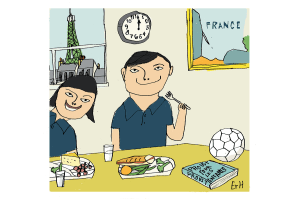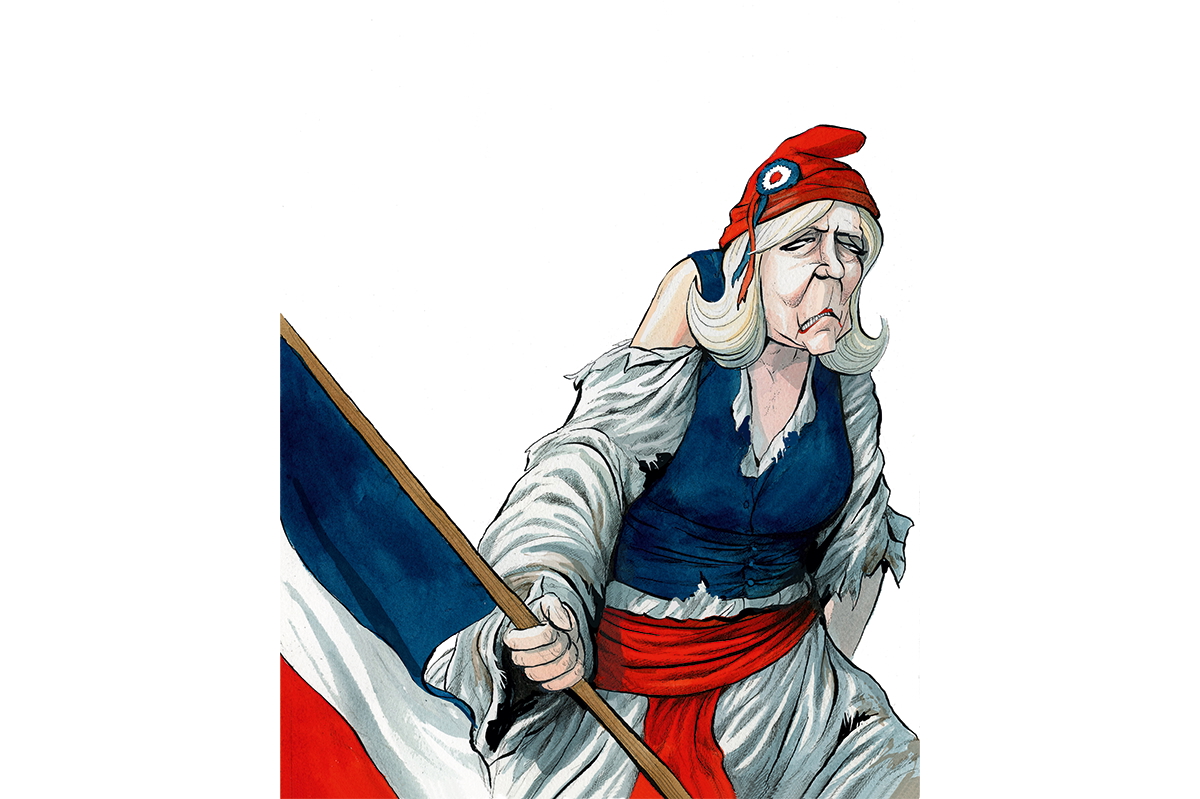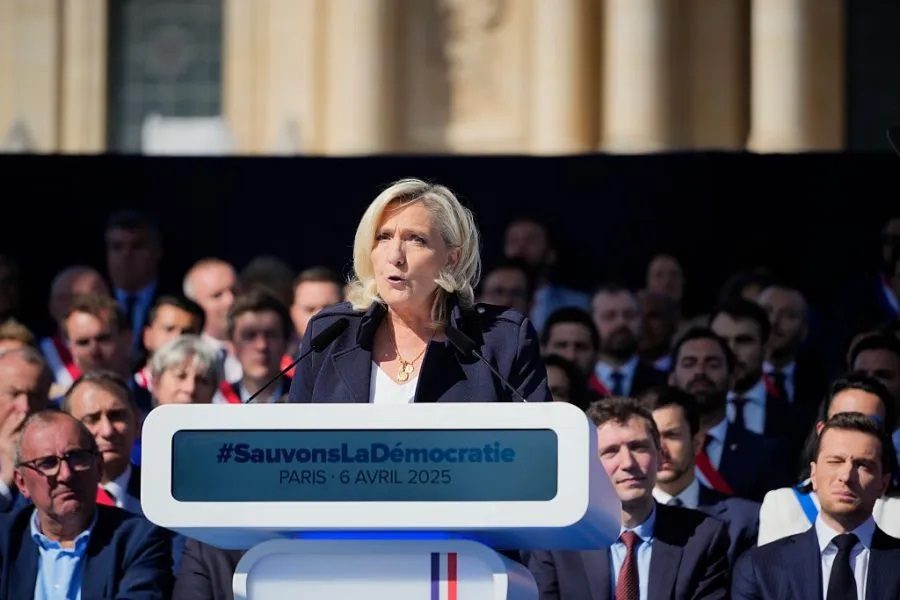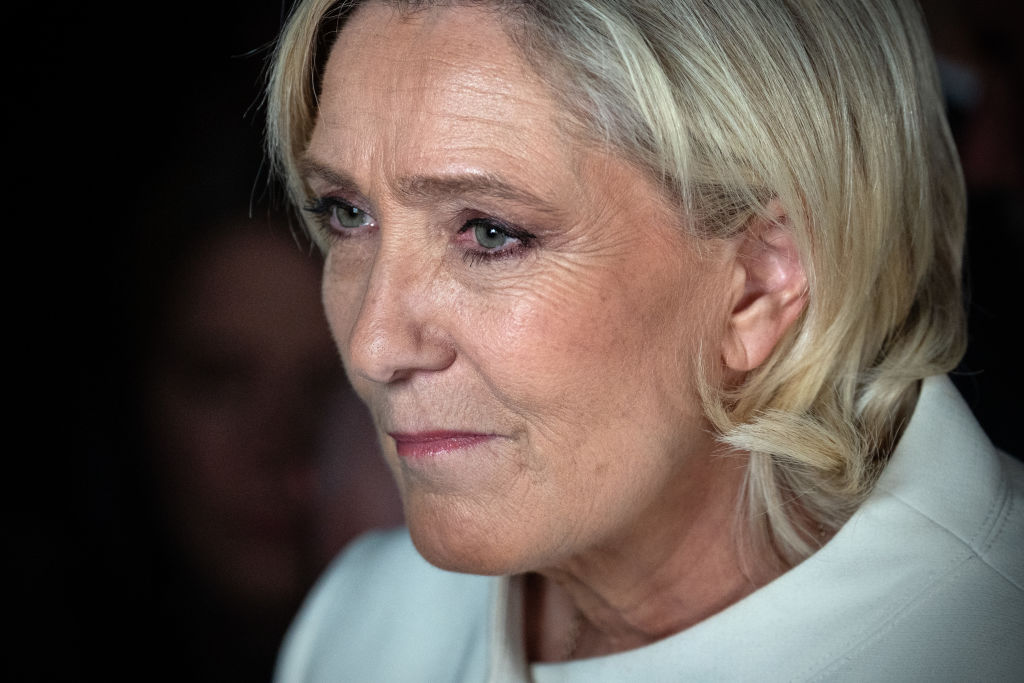The war of words between Pakistan and France — sparked by President Macron’s comments about radical Islam — rumbles on. But the latest skirmish has led to an embarrassing climbdown from one of Pakistan’s top politicians.
‘Macron is doing to Muslims what the Nazis did to the Jews — Muslim children will get ID numbers (other children won’t) just as Jews were forced to wear the yellow star on their clothing for identification,’ wrote Pakistan’s federal minister for human rights Shireen Mazari. Mazari’s tweet was quickly picked up by those who have suggested there is something sinister to Macron’s recent interventions. But there was a problem: it was nonsense. France soon hit back, calling out Mazari’s ‘fake news’. Macron’s government also issued a statement, describing the comments as ‘blatant lies, loaded with an ideology of hatred and violence’.
Mazari initially stood her ground, asking the French to instead ‘get (a) retraction’ from what is a little known online blog. Mazari then deleted the original tweet and issued a clarification. But instead of sharing an apology on her Twitter account for what was an outrageous diplomatic faux pas, Mazari has instead been busy sharing a link to an article which suggests that France is ‘not the free-speech champion it says it is’.
For the Pakistani government, this was the latest in a string of embarrassing foreign policy blunders in its dealings with France. In September, in the same week a Pakistani-born man targeted the former offices of Charlie Hebdo in Paris, Pakistan’s prime minister Imran Khan was busy condemning ‘Islamophobic’ cartoons. Khan told the UN that rising global nationalism has ‘accentuated Islamophobia’ and claimed that Muslims ‘continue to be targeted with impunity in many countries’. Last month, Khan went a step further, accusing Macron of ‘deliberately provoking’ Muslims.
[special_offer]
Khan’s fiery rhetoric on France last week came home to roost, when radical Islamist group Tehrik-e-Labbaik Pakistan (TLP) in effect insisted Khan put his money where his mouth is. The group called off its anti-France protest, saying that Pakistan’s government had backed a boycott of French products. Pakistani ministers have yet to confirm the boycott, but if it does go ahead, will it include the annual grants that Paris provides to Islamabad? If so, Khan might come to regret his words.
While Pakistani leaders have been visibly more invested in French Muslims — and conveniently quiet on Uighurs — they seem to ignore that Islam is thriving in France: the number of mosques in the country has grown from 33 in 1971 to over 2,500 now. It is a pity that Pakistan can’t replicate this apparent tolerance for those of other faiths; the number of minority places of worship in Pakistan has reduced dramatically in recent years. Despite an effective religious apartheid against Ahmadis, and a reported 1,000 forced conversions to Islam each year, Pakistan continues to think it has a moral ground to lecture France on religious freedom. Why?
When corrected by France’s Ministry of Europe and Foreign Affairs, Mazari responded with a snarky tweet asking ‘why are nuns allowed to wear their “habit” in public places but Muslim women not their hijab?’. This, of course, ignores the fact that France bans all religious symbols in public institutions. It’s also worth remembering that, for all the outrage directed at France’s crackdown on Islamism, the measures put forward include steps that already happen in majority-Muslim countries, including state regulation of mosques and imams. But try telling this to Imran Khan.
This article was originally published onThe Spectator’s UK website.



